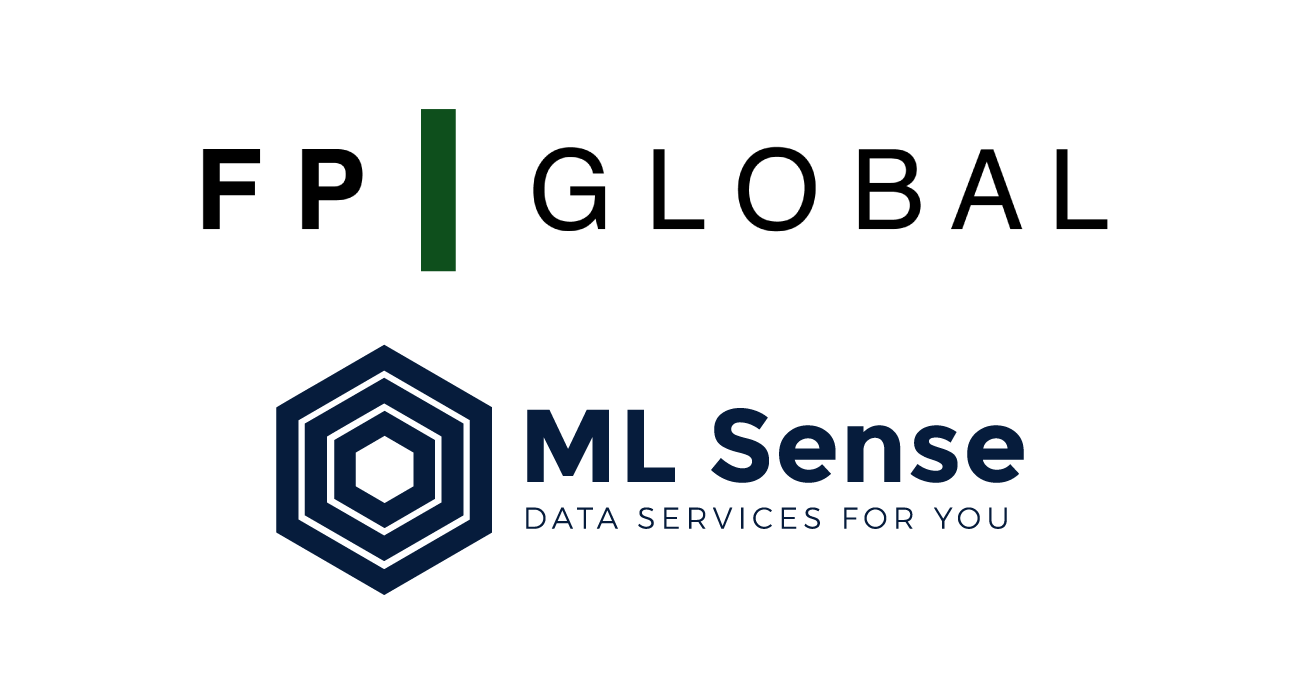Latest Insights
November 30, 2018
In this exclusive behind-the-scenes by Funds Partnership Asia, we hear from Edwin Hoi, Head of Real Assets Fund Services at Citco on his unusual career trajectory, and why he thinks fund admin is the hottest new place to be, and what skill-sets you need that will give you an edge above your peers:
1. What’s your career path in a nutshell? Why did you enter the buy-side front office for a while and then leave?
Well, I intentionally planned my career in such a way that it would give me the full end-to-end spectrum of what it means to become a finance professional.
I started my career as an auditor in KPMG before joining the real estate sector in Australia as an accountant across various property trusts.
Although I never had the intention to become a partner in an accounting firm, but I must say accounting was the perfect entry point to REI. Property is definitely my favourite asset class (you can see, feel and touch it). Accounting gave me a solid foundation in financial control, managing external parties, and organisations, which definitely set me up to move onto the buy-side.
I finally stepped into the “elusive” world of Investment Banking and Asset Management while at Macquarie Bank in Australia. I was curious and wanted to get a foot into that part of the value-chain. It did equip me with the fundamentals of good financial modelling, and definitely sharpened my business acumen.
Why did I leave? Well, front office is all about sales, which oftentimes is about personality as well. While I was alright with pitching and running models, selling wasn’t exactly my CORE skill. I wasn’t in my full element as the sales person.
Over time, I realised I was much better as a problem solver – putting frameworks and controls around things. That was definitely more my cup of tea. I had a taste of what the buy-side was like, and I realised I’ll be better as a CFO-type of person.
Most recently, I spent 8 years in Standard Chartered Bank – initially managing the accounting and finance function of the Private Equity and Alternative Investment division, and then later as the CFO for Property comprising the Bank’s owned and occupied portfolio.
2. You now work for Citco, a market leader in fund administration. What influenced your decision to shift to fund administration?
To be honest, I didn’t actually actively pursue or search out this role at Citco, but my current boss saw that my past experiences positioned me as an ideal candidate for the job and sought me out. For example, at Standard Chartered, I managed the financial aspect of a global outsourcing project and understood the importance of building a strong partnership with any service provider.
Being able to understand clients’ point-of-view will definitely give you the vantage point to also see from the provider’s POV too.
In general, there are 3 “Ps” I look out for in any job – regardless if it’s a “fund admin” or buy-side role, I would assess it objectively based on:
1. Product
2. Plan behind the Product
3. People who execute the Plan
a) Product: As outsourcing was booming, it was definitely enticing – full of potential and not at all dead or static. Furthermore, the work was more strategic rather than administrative – allowing me to harness my underlying skill-sets to optimise and motivate the team
b) Plan: At that point, there was need to ramp up on a massive scale, rapidly. The focus was all about growth – which is way more rewarding than just number-crunching. It was all about seeing yourself as a business partner, solving problems both for the clients and even to internal stakeholders
c) People: My boss is really one-of-a-kind! When I was still considering the role, she continued to relentlessly hustle and hunt me down. She shared her vision for the company and the role I had in it. We have a great culture – very flat hierarchy where every one is valued for their unique skill-set and opinions. That definitely sealed the deal for me!
3. It seems that people have an impression that back office is mundane, repetitive and unexciting, but your experience seems to be very much the opposite. Would you say that is representative of the fund administration industry?
The landscape is changing such that fund administrators are becoming increasingly integral to our clients’ business and their daily operations. We aren’t just an outsourced partner or a peripheral function anymore.
Family offices and private equity funds consist of very lean teams that will aim for efficiency both in processes and costs.
So the fund administrator is now their expertise consultant! Whenever there is an impending deal, our clients would call us up – and we would work very closely with them to advise on the terms, accounting and operations.
It’s all about client relationship management, problem-solving, and aligning to their needs. Given that outsourcing will become more prevalent, being involved at such a strategic level may be rare at an in-house firm, which may not want to hire at such junior levels.
I would recommend fresh graduates to find a big player in fund administration and get the full-suite of experience – accounting, control, financial control across a variety of clients. Auditors only ever get to dabble in such things after 10-15 years in the industry. But here, you will get a much fuller experience even in a junior role.
For example, even though Citco is currently 60-years-old and definitely a pedigree brand, but it’s been constantly evolving in the last 2-3 years to meet the demands of the market.
So, it’s definitely not boring – you decide how much as you want to get out of it.
4. In what situations would you would recommend in-house Fund Accountants to make a switch to Fund Administration?
There’s going to be a mind-set shift, especially if they have done it for a long time.
As they might be used to managing one client, suddenly needing to multitask may come as a shock. Another thing is having to deal and manage expectations of external stakeholders instead of internal ones which essentially means many things are out of your control. On the other hand, it is sometimes easier to draw boundaries with external stakeholders.
Personally, when I was in Standard Chartered, it was pretty tough having to negotiate internally with various CFOs, so switching over to fund admin wasn’t a problem. If you don’t mind a fast-paced, fluid environment having to deal with many stakeholders, you’ll fit in just fine! For people who like things who are cast in stone, they will find the flat hierarchy challenging.
5. What do you think is the future of the fund admin industry? What is an increasing trend that you’ve noticed based on your clients?
It’s going to be a very exciting space in the next 5-10 years! Currently, 20-25% of real estate private equity funds globally are outsourced – and it’s only going to grow exponentially from here! Accounting is just one element, while investor relations is another. I foresee there’s going to be a lot more demand for KYC, AML and compliance roles in the near future.
Also, role of the fund administrator as strategic business partner will only be on the rise. There will be more sophisticated, larger clients that will want to form administration partnerships.
6. What is the work-life balance in fund administration compared to buy-side?
Honestly, I wouldn’t have thought it to be as crazy as the buy-side – but I think it’s comparable. It all depends on your manager, and the culture of the organisation. There’s a lot more perks in terms of being able to learn more diverse skill-sets across various best of breed clients. For one, compared to the buy-side, we are not bound by individual company specific constraints – but have the liberty to initiate and make various improvement suggestions to our client and therefore always trying to add value where we can.
We are mostly based in the office, however, I constantly encourage my managers to constantly network and mingle with their counterparts on the client’s side as well beyond their desks.
As for my team, I make sure that everyone is off by a reasonable hour. I don’t need bums on seats for 8 hours a day – I don’t believe in having such an environment where you have to pretend to stay at work until your boss leaves.
My priority to my team is, “tell me how I can make your life easier?”
7. And what about the compensation? Does it differ drastically from those in the buy-side?
For sure, the bonuses are not anywhere near to the buy-side, however, our base salaries are higher. There’s less of chance of drawing huge bonuses, but there’s also substantially less risk in terms of job security for sure. So in my view, it all evens out in the end. But gone are the days when it was 30% lower than anyone else. It is very comparable to all other roles in the finance industry.
8. What are the exit opportunities for those working in this space? Is it just to get into buy-side, or progress within the industry?
I believe there are plenty of transferrable skills after being in this space. You’re going to be highly sought-after and can pretty much land a job anywhere because you understand applications across the full spectrum. Some work here for 5-7 years, and then go on to the buy-side, or governance.
An edge that fund administrators have would be excellent client management, adaptability in negotiating with external stakeholders.
The other thing is this – you are the business. You are not just supporting the business.
In the buy-side, you may never get to be the one making deals unless you’ve reached a certain seniority. But in fund administration, you are the revenue generator.
For sure, there are people poaching some of the members in my team, I guess it’s actually a problem that everyone has to deal with especially if they have built a high performing team!
9. What types of soft skills or traits would be ideal in Fund Admin? What would you look out for when hiring?
a) Inquisitive and creative
Try to work out a solution and not just present the problem! To excel in this industry, you’d need to know nobody is going to spoon feed you with the answers – but if you have a growth mind-set and an attitude to learn, you’ll find a way. Being inquisitive is so important – not taking no for an answer, exploring creative solutions and out-of-the-box ideas, and thriving when crisis arises.
b) Not be afraid to speak up and challenge the norm
One of my core philosophies is to encourage people to be outspoken. I know it’s quite rare in an Asian context, but we really cannot afford to be passive or beat-around-the-bush in this fast-paced industry. I’d notice those that challenge the status quo and are able to thrive in a dynamic environment where they can leverage the flat hierarchy to make a real difference.
c) Not entitled and willing to fail
One small note for millennials: don’t be entitled! You need to learn not to be offended or feel jaded when things don’t go your way. And if you haven’t encountered failures or set-backs before, then get ready because you will definitely face it here.
You need to expect that things WILL go wrong, and you will make mistakes – but it’s about how you manage that failure that defines you as a person .
There will be lots of unpredictability in this industry, and you will not be able to control everything, but are you going to rise above it? Or just wallow in your sorrows?
10. What about fresh graduates with no prior experience? What would the best route-to-entry be?
I’m very happy to groom fresh graduates in accounting or even business with no work experience! Our managers are trained to really mentor each individual in their unique own career paths, even beyond fund admin. Honestly, I do prefer investing in great talent early-on and see them progress, rather than hire externally for a more senior position as these senior talents are much harder to come by.
If you are keen to find out more about working in the fund administration industry, whether you’re a fresh graduate or mid-career switcher, do check out Funds Partnership Asia or send a query over to ayyaz@fundspartnership.com.
Share This Article
Articles You May Like














